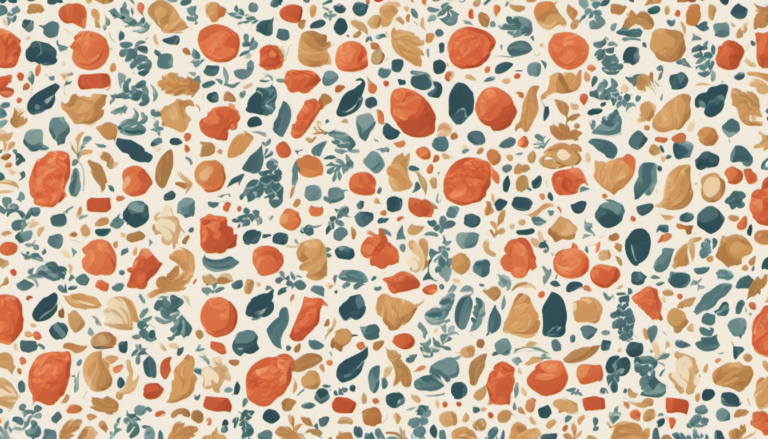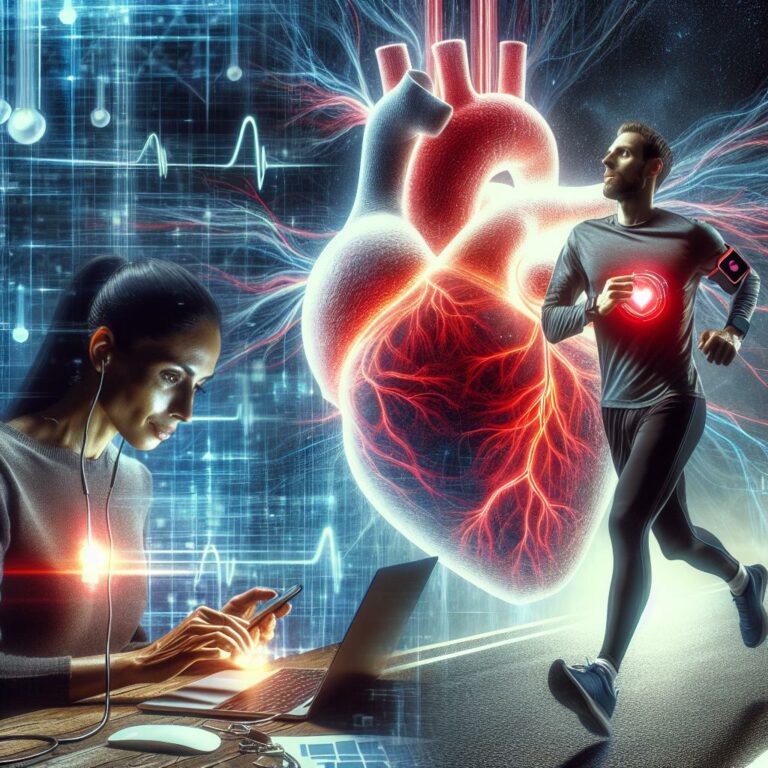The Truth About Detox Diets: Do they really work?
Bathed with a soft aura of enlightenment, a legion of green juices, detox teas, and wacky foot pads have manifested in our lives, promising a purified body blessed with pristine health. Our social media feeds are richly adorned with the ‘before and after’ tales of the famous and the non-famous, endorsing the might of detox diets. But with their seductive promise of casting out harmful toxins and gifting us a miraculous transformation, one can’t help but wonder – do these so-called detox diets hold any real water or is it just another trendy mirage in the desert of everchanging fitness wisdom? Let us dive into this pool of contention and extract the slimy truth from the murky depths of purported health euphoria.
Table of Contents
- Busting Myths: Understanding the Detox Diet Phenomenon
- Peeling Back the Layers: The Scientific Perspective on Detox Diets
- More than a Weight Loss Shortcut: Evaluating the Health Implications
- An Enlightened Approach: Expert Recommendations on Detox Diets
- Q&A
- In Retrospect
Busting Myths: Understanding the Detox Diet Phenomenon
The world of nutrition and health is rife with misinformation, and the concept of “detox diets” is no exception. It’s frequently touted as a quick fix for weight loss, reduced bloating, and improved overall health. But is there any truth behind these claims? Do these diets truly work? Or, in contrast, are they a mere fad motivated by celebrity influence and idealized before-and-after photos?
To comprehend the reality of detox diets, we first need to understand what they entail. These diets often focus on eradicating "toxins" from the body through a special diet, sometimes accompanied by supplements or other procedures. They often promote:
- Consuming only juices or special beverages for a certain period.
- Eliminating certain food groups considered to be “unhealthy”.
- Using dietary supplements or other products.
- Following a strict eating plan, often very low in calories.
While the above might sound appealing for those seeking a health boost, the scientific evidence supporting detox diets is vague. Our bodies are naturally equipped with a detox system. Your liver, kidneys, digestive system, skin, and lungs all play a big role in processing and removing toxins. Hence, a special diet isn’t necessarily needed, unless specified by a physician for particular health conditions. If anything, some of these diets may do more harm than good, especially when it involves severe calorie restriction or the exclusion of entire food groups. It’s always best to consult with a healthcare professional before trying out such diets.
Peeling Back the Layers: The Scientific Perspective on Detox Diets
The human body is an intricate and smart mechanism, equipped with built-in systems to detoxify and cleanse itself. The liver, kidneys, digestive system, skin, and lungs - all play key roles in this intricate dance of detoxification. Yet, we live in a world where detox diets are hailed as quasi-magical quick fixes to flush out toxins, lose weight, and improve health. Let’s look at the science behind these claims.
Detox diet proponents suggest several practices - drinking only juices or smoothies for days, consuming specific foods, or using dietary supplements. These are some examples of suggested methods:
- Juice or Smoothie Cleanses: Consuming only fruit and vegetable juices or smoothies, often for 3-10 days. This, they claim, gives the digestive system a break and flushes toxins out.
- Singular Food Focus: Limiting the diet to just one specific food (like cabbage soup or grapefruit), believed to slash calories and cleanse the body.
- Dietary Supplements: Use of certain herbs, teas, or pills marketed to detoxify the body, often coupled with very low-calorie intake.
On the flip side, scientific consensus views detox diets with skepticism. The body indeed needs help to detoxify - in the form of a balanced diet, regular exercise, and ample hydration. But do these extreme detox diets aid in that process in any excess? Many experts argue that they don’t. Instead, they might lead to nutritional deficiencies, electrolyte imbalances, sugar level swings and other adverse effects. Some aspects to ponder include:
- Nutrient Deficiency: Detox diets often severely restrict calorie intake, which may lead to nutrient deficiencies, as well as an inadequate supply of carbs and protein, needed for energy and tissue repair.
- Elevated Health Risks: Detox diets can cause a range of uncomfortable and even dangerous side effects like fainting, fatigue, low blood sugar, and more.
- Rebound Weight Gain: Since these diets don’t teach sustainable eating habits, weight is often rapidly gained back once normal eating resumes.
The truth – clear as scientific evidence – is that the body’s detoxification process is more complex and advanced than these diets give it credit for.
More than a Weight Loss Shortcut: Evaluating the Health Implications
Detox diets are often touted as quick fixes for weight loss, but their health implications extend beyond the scale. Supplementing your regular regimen with a detox diet can have a dynamic impact on various facets of your health, although these impacts aren’t always completely positive. These health effects, both good and bad, stem largely from the nutritional composition of most detox diets.
Nutritional Benefits and Shortcomings
- Rampant Nutrient Intake: Detox diets often involve consuming large quantities of fruits, vegetables, and whole foods. These food groups are packed with integral vitamins, minerals, and antioxidants, which optimize overall bodily function.
- Elimination of Processed Foods: These regimens emphasize removing processed, unhealthy foods from the diet. This move away from saturated fats, sugars, and salts can lead to lower cholesterol levels, improved cardiovascular health, and even decreased risk of certain chronic diseases.
- Lack of Protein: Oftentimes, these diet plans lack satisfactory levels of protein intake, which could potentially lead to muscle loss. Protein is key for muscle growth and repair, and maintaining a regular intake is essential for those who lead active lifestyles.
- Caloric Deficiency: Detox diets can be drastically low in calories, leading to immediate weight loss, but this isn’t necessarily a healthy or sustainable way to maintain a lower weight. Extreme low caloric intake can lead to fatigue, nutrient deficiencies, and a slowdown in metabolism.
It is critical to remember that not all detox diets are created equal. Therefore, it’s paramount to thoroughly assess a detox plan’s nutritional composition before diving in to ensure it aligns with your personal health needs and objectives.
An Enlightened Approach: Expert Recommendations on Detox Diets
The realm of detox diets can seem bewildering with a myriad of options available promising rapid weight loss and comprehensive toxin removal. However, our panel of experts unanimously concurs that a majority of these regimes are pseudo-scientific at best and outright harmful at worst. Their advice? A sensible, naturally focused strategy is the most effective and safest option for those seeking to cleanse their bodies.
The underlying principle of every detox diet should be rooted in the enhancement of the body’s natural detoxification process. This involves promoting the optimal functioning of three key organs: the liver, the kidneys, and the colon. Tailoring your diet to support these organs involves incorporating a selection of nutrients essential for their operation. These include:
- Ample hydration: The importance of staying hydrated cannot be overstated as water is crucial for the kidneys to filter out waste from the blood.
- High-fiber foods: Foods rich in dietary fiber such as whole grains, vegetables, and fruits facilitate the elimination of waste via the colon.
- Crucial nutrients: Certain vitamins (notably B-vitamins and antioxidants like vitamins C and E) and amino acids are essential for liver function. Ingesting ample fresh fruits and vegetables ensures an adequate supply of these nutrients.
Analysing the cause-effect relationship between detox diets and the perceived health benefits, most experts agree that weight loss and improved well-being are typically the result of eliminating processed foods and increasing consumption of whole foods, rather than the explicit result of ‘detoxification’. This enlightened approach calls for moderation, balance and consistency rather than drastic, unsustainable dietary regimes.
Q&A
Q: What exactly is a detox diet?
A: A detox diet is essentially a dietary plan that claims to cleanse your body from toxins and impurities, usually through the consumption of specific foods, fasting, or using certain supplements.
Q: How is a detox diet typically done?
A: Methods vary according to different programs but generally entail the elimination of processed foods, alcohol, coffee, and red meat; drinking lots of water or tea; and eating whole, nutrient-rich foods. Some include juice fasting or taking supplements.
Q: Are detox diets effective at removing toxins from our bodies?
A: There’s little scientific evidence that detox diets effectively eliminate toxins from the body. In fact, our body, specifically our liver, kidneys, and intestines, are naturally efficient at removing harmful substances.
Q: Can detox diets lead to weight loss?
A: Many people do experience weight loss on a detox diet, primarily because they involve cutting out high-calorie, processed foods. However, this weight loss is often temporary, as these diets are usually not sustainable in the long run.
Q: Are there any health risks associated with detox diets?
A: Absolutely. Detox diets, particularly those involving extreme fasting, can result in nutrient deficiencies, electrolyte imbalance, and potentially harm your metabolism. It is always recommended to seek medical advice before beginning such a drastic dietary plan.
Q: Can a detox diet improve my skin or overall health?
A: Some people report better skin, more energy, and improved mental clarity after a detox regime. However, this can likely be attributed to the reduction of processed food and alcohol and the increase in nutrient-rich food consumption. There’s no scientific evidence directly linking detox diets to these benefits.
Q: Are all detox diets the same?
A: No. There are numerous detox diet plans available, each promising different results. Some focus on juicing, others on fasting or eating certain superfoods. The common thread is that all imply a dietary clean-up, but they’re not all the same in terms of methodology or result.
Q: So, do detox diets really work?
A: The current body of scientific evidence does not definitively back the effectiveness of detox diets for toxin elimination or long-term weight loss. Most health professionals agree that a balanced, regular diet with plenty of water, fruits, vegetables, lean proteins, and whole grains much better supports the body’s natural detoxification process.
In Retrospect
As we plunge into the alluring currents of the detox river, it’s important to remember there is no magic potion to wash away years of dietary sins. Detox diets and cleanses speak to our quest for quick health fixes, our desire for purged systems and pristine health. Some may testify to experiencing a sporadic sparkle or temporary glow, with occasional bouts of increased energy. But it may take more than a squeeze of lemon or a burst of cayenne pepper to truly detoxify and protect us from the barrage of daily toxins. Remember, your body is naturally equipped with its own detox tools. So, consult a healthcare professional before undertaking any processes that veer from your normal dietary habits. Health, after all, is not a destination, but rather, a journey; one that is long, fulfilling, and, dare we say, definitely requires more than an occasional ‘detox.







